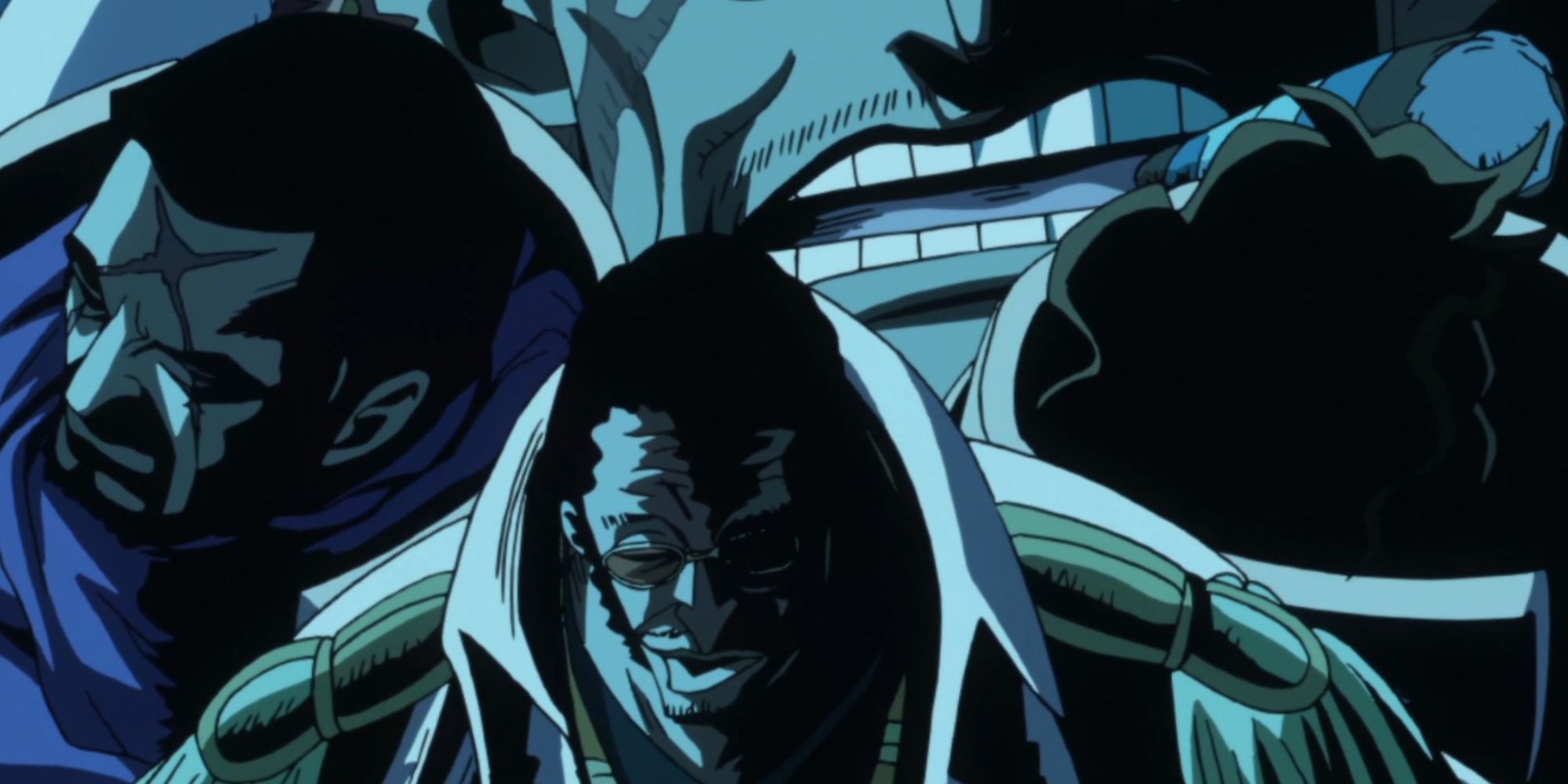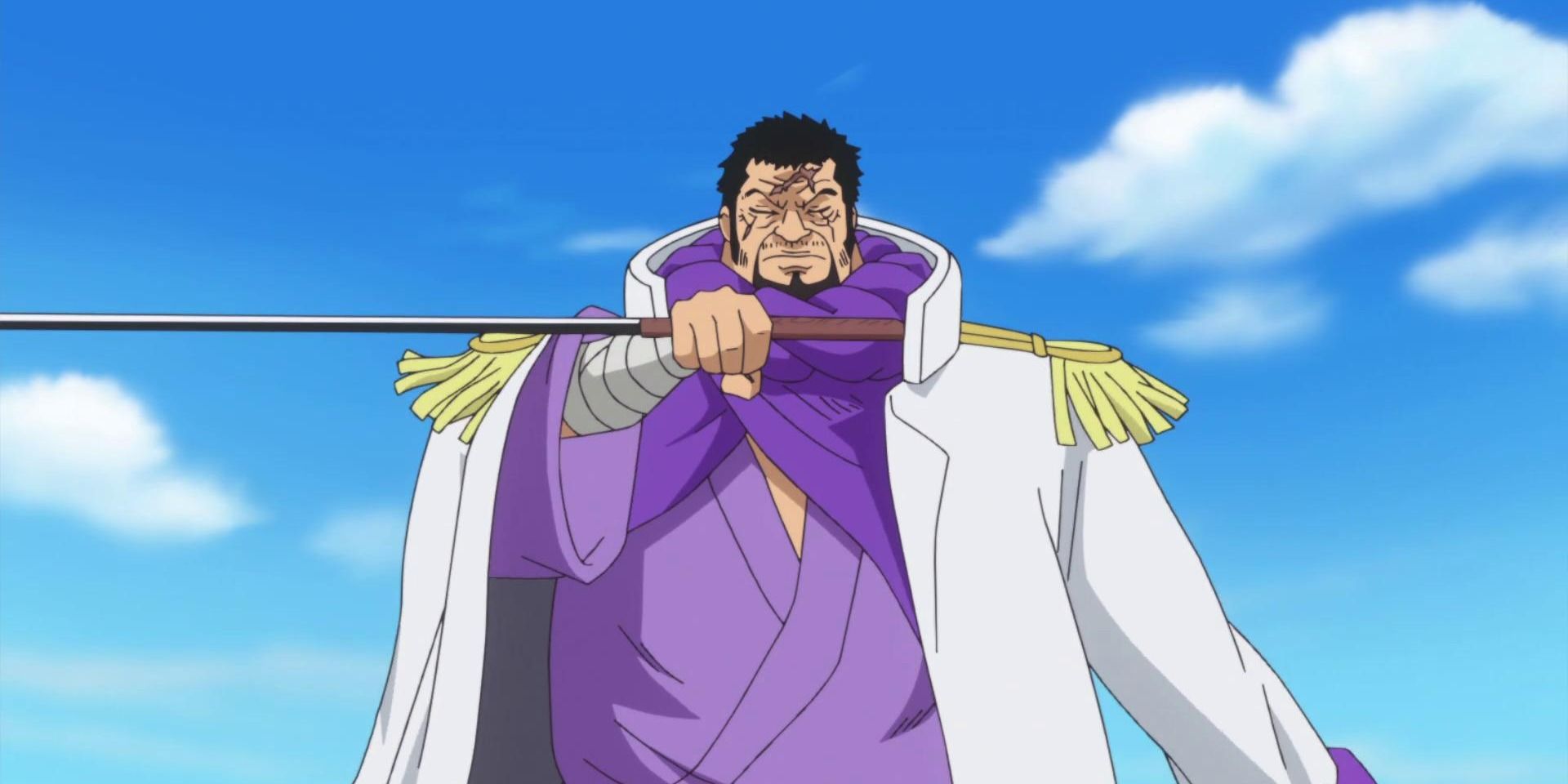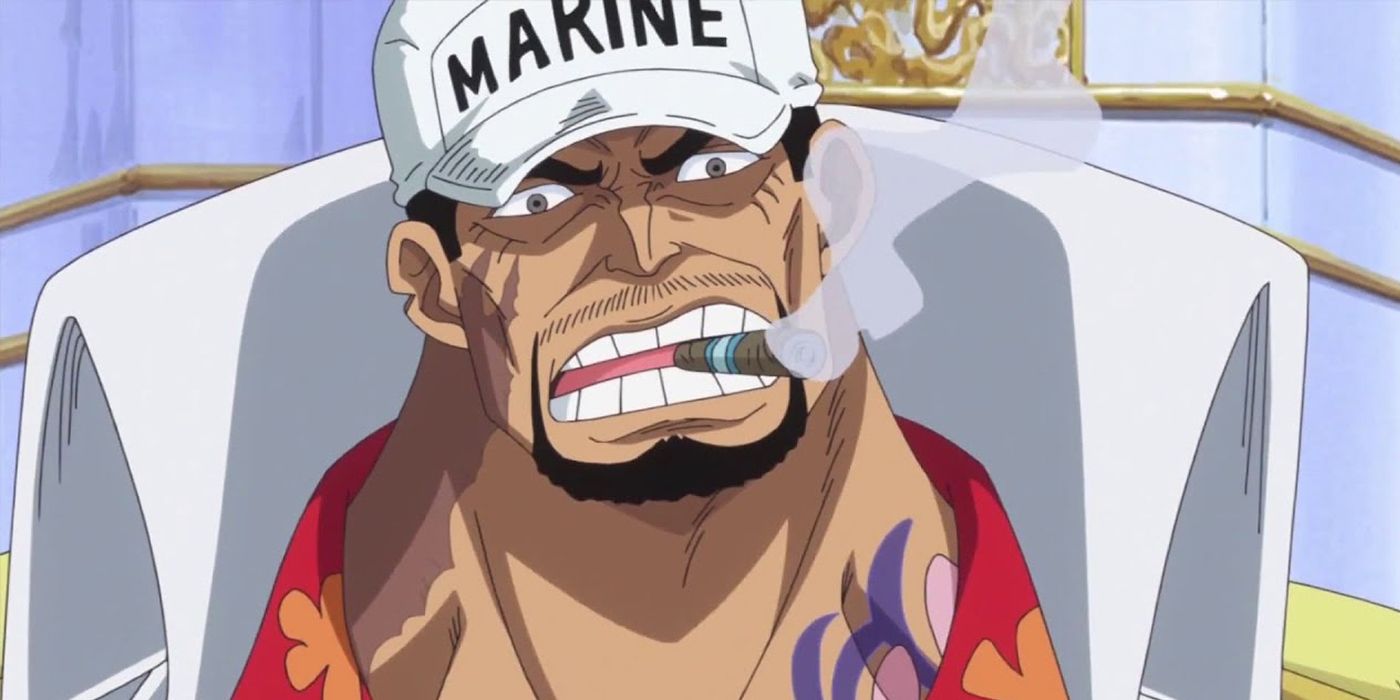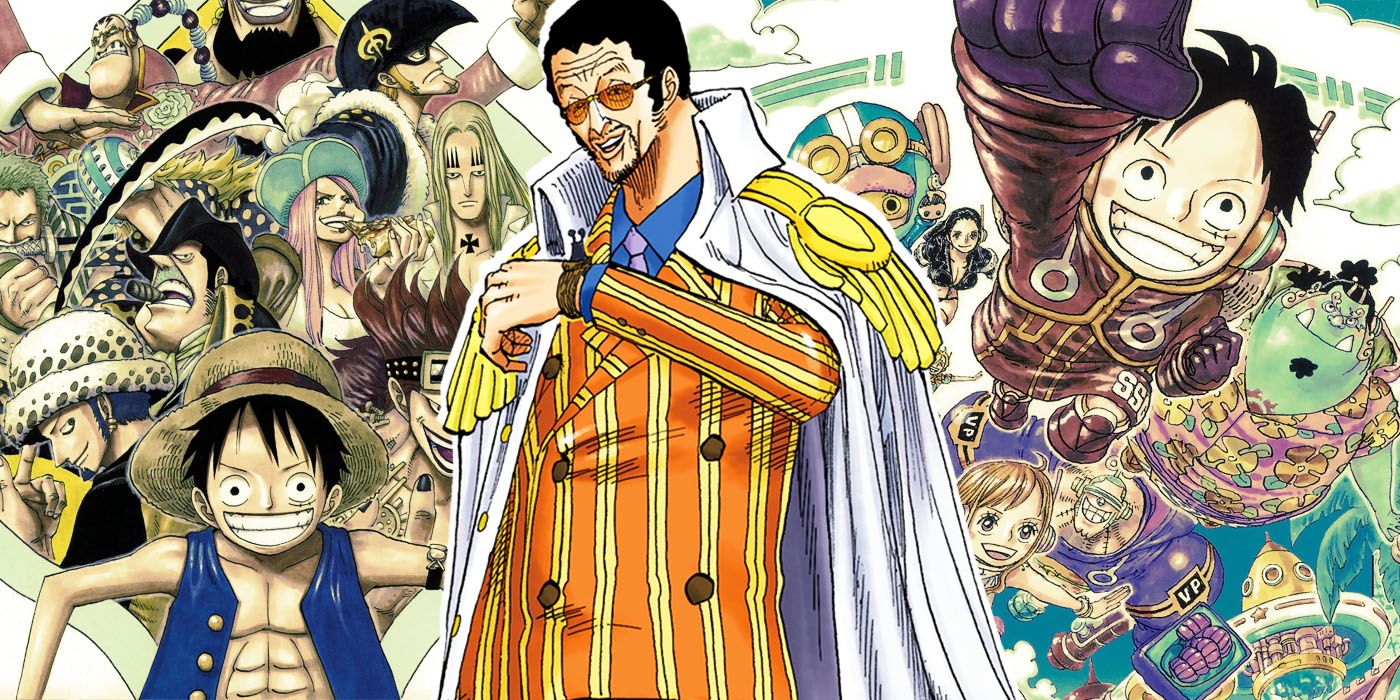Summary
- The Admirals in One Piece, often deviate from the Navy's sense of justice and have shown discontent with the World Government's orders.
- Admirals like Aokiji, Fujitora, and Kizaru have displayed doubts about their duties and have the potential to reject their regime's expectations in favor of doing what they believe is right.
- However, Admirals like Akainu, Ryokugyu, and Vice Admiral Garp are less likely to change and remain committed to the Marine's code of justice, even if they recognize its imperfections.
The Admirals (and Fleet Admiral) are the highest-ranked officers in the Navy. They, above all, are supposed to embody the Marines' strong desire for justice in the One Piece world. They also provide unquestioning loyalty to the Celestial Dragons of the World Government, even if their desires contradict the pursuit of justice. Being one of these men means having a firm moral compass, devotion, and absolute power. These qualifications should make them strict and uncompromising, especially toward the pirates the Navy regularly hunts down.
However, the Admirals aren't as focused on bringing Pirates to justice as one might think. They've spared their marauding enemies when they had no direct quarrel with them. They have enough awareness to recognize the Navy's imperfect sense of justice and act against it. At the same time, they feel powerless against the system, which forces them to submit to it. If someone showed them power beyond their ideals and the system, that could create the impetus for them to aim for change. Fans expect a war with the Marines to generate that overhaul, but the individual Admirals could also have some sense knocked into them by a certain straw-hatted pirate and his crew. Interactions of the latter kind could lead these men to turn over a new leaf long before the series ends.
Which Admirals Are the Most Uncertain About Their Jobs?
Aokiji was the first to show his distaste for the Marines' sense of Justice. He prefers a Lazy Justice where he only deals with those who cause trouble rather than any pirate who crosses his path. He'll step up to enact further justice when asked.
Aokiji's discontent could have taken shape for several reasons. It could have been the obligation to kill whoever the World Government told him to, including his old friend Jaguar D. Saul. It could have been working under Akainu and his strict form of Justice. Whatever it was, it compelled him to quit being an Admiral and become a pirate. This way, he could pursue his goals as his own man.
Fujitora's dislike of Marine policy stems from its flawed policies. The first was the immunity of the Seven Warlords, which almost forced him to risk the lives of everyone in Dressrosa living under Doflamingo's tyranny; this was a sharp contrast to his Humane Justice, which ordinarily prioritizes the needs of the people. He also butted heads with Akainu over whether to be open about Dressrosa being saved by pirates rather than the Marines. This approach to enacting justice led him to be banned from Naval bases until he caught Luffy and Law.
Even Kizaru has shown some regret over what the World Government is making him do. In the Egghead Arc, he's under orders to kill his old friend Dr. Vegapunk. While seeking him out, he's also had to hurt other old friends and acquaintances like Sentomaru and Jewelry Bonney. It's unclear whether he's genuinely remorseful or sociopathic since he's had a wry and condescending smile throughout, but the shading suggests he is taking this matter seriously.
Kizaru's feelings on the matter (or lack thereof) are likely a byproduct of his Unclear Justice. He never takes a firm stance on anything and carries out his orders impartially. Therefore, even if he does regret killing Vegapunk and the others, he'll do it with a clear conscience, knowing he did his job.
Aokiji, Fujitora, and Kizaru all have something in common besides unhappiness. They also have the potential to shun the duties their regime would have them perform to do what they know is right. Aokiji (now Kuzan) has already quit his job, Fujitora has ignored standard protocol, and Kizaru needs a firm push to sway him from his neutral position. With any luck, they could all follow their hearts and do what's truly just once the Marines are destroyed or reformed by the end of the series.
Which Admirals Are More Committed to Their Jobs?
Of course, while there are Admirals who are willing to embrace change, there are those who are more set in their ways. Even if these Admirals show signs of doubt, they'll likely stick to their Marine code for the sake of justice. They're more likely to remain antagonistic toward the Straw Hat Pirates until the end of their voyage.
Akainu is the least likely to change among the Admirals. His motto is Absolute Justice, which means he'll kill as many innocent people as he has if it means dealing with his intended pirate targets. That said, there may be signs in the narrative that the Fleet Admiral knows what he's doing is wrong. Chapter 1092, "Kuma the Tyrant's Holy Land Rampage," saw Akainu berate the Pacifista Kuma for being a puppet with no free will left; he did this as he was being criticized and ordered around by his Celestial Dragon bosses. Readers have interpreted Akainu's words as projections of his insecurities with the World Nobles there to highlight his hypocrisy. This doesn't mean he's willing to change, but it proves that he recognizes the imperfect system and sticks with it all the same.
Ryokugyu is the least willing to change among the Admirals. His Determined Justice closely follows the principles of Absolute justice. He considers the World Nobles gods and deliberately looks down on the weak and countries unaffiliated with the World Government. This is to say nothing of his desire to earn Fleet Admiral Sakazuki's approval. He is remorseless and morally reprehensible down to his core. He's the kind of antagonist the Straw Hats should have no regrets giving him everything that's coming to him.
Vice AdmiralGarp also deserves a note despite not officially being an Admiral. He deliberately avoids the promotion because he knows it means taking direct orders from the World Nobles. While he is aware that the Navy isn't perfect, he sticks with them because he firmly believes in the good they do. That said, his commitment to his job could make him a future enemy of the Straw Hats.
How Could the Admirals' Feelings Affect Their Futures?
There are a few ways for the Admirals’ stories to end. In a perfect world, they would see the error in their actions and become allies to the Straw Hat Pirates. They could join the pirates' side in the final battle against the Marines and the World Government. As for the Marines who are more resistant to change, they’ll likely receive a sound beating and be forced to resign. Their regime will be replaced by the next generation of Admirals looking to make a difference in the world rather than adhere to a rigid form of Justice. They’ll still hunt pirates, but they’ll be more humane. In that sense, we’ll-meaning Admirals like Fujitora May be allowed to keep their positions. Of course, One Piece is still a battle Shonen manga. Whether the Admirals intend to change or not, the Straw Hats will likely have to beat each of them at least once before they change for the better.
Losing would force these individuals who live by strength to re-examine their worldviews and acknowledge that the Straw Hats have stronger morals. One way to tell how the Admirals will turn out is by examining Luffy’s battle with Kizaru on Egghead. This will likely mark the first time in the series an Admiral faced utter defeat at the hands of a pirate, which could shake the world. Additionally, Kizaru's loss should uncover whether he is regretfully neutral or a sadist pretending to be helpless within the current system. If Kizaru is open to change, that could say plenty for his fellow Admirals. At the very least, it should show the chance for reformation and redemption for those further from the current Navy's sense of Absolute Justice, like Aokiji and Fujitora. Before those opportunities can be explored, the Straw Hats will likely still have to fight and win against them.




